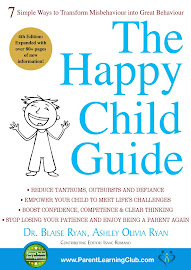One of the most frustrating parts of children forced into temper tantrums. Kids can test their parents really sanity, after the child gets to be approximately 18 months of age before turn 3-4 years. One of the most common reason why children throwing temper tantrums is explained by the fact that the child cannot do or have something he or she wants. Unfortunately the biggest mistake, parents give child element or allow your child to do after saying "no" and the kid throws a fit. A child just learned that tantrum temperament has received the child what he or she wishes.
This can be very difficult, as a parent to your child when he or she is awful, and you just want to stop this kind of behavior is, however, can only get worse, and when the child is a teenager, he or she will increase the severity and intensity of behaviour at the point where you are in, or dealing with serious consequences.
At this point, little temper tantrum of two years will seem like a piece of cake.You would like to simply temper tantrum at the time it is much easier to follow with a 2-year-old than much bigger and stronger the 14 years that has 12 years learning what works to get what he or she wants the first Council for prevention of tantrums is to always make sure your child is sleeping and eating every few hours of sleep deprivation and hunger can make tantrums is more likely when speaking is not a child.
Tips on how to say "no" without a temper tantrum:
o avoid saying "no" and tell your child what he or she may have instead. for example if your child wants to juice or pop and your child may not have any, but he or she may have water just say "you can have water," he or she requests again and you say, "you can have water" then continue to receive water and transfer the child and walk away while ignoring all other behavior this method works best if you can make choices, such as "you can have water or milk.For the child that wants to play and refuses to go to sleep, you might say, "you can read books, or sleep."Books will be part of the normal bedtime, and therefore the choice continues to sleep.
o if you are tired, stressed or vulnerable, just say "Yes" just as long as it's not something unsafe or do not have/ if you know that you are in a position where you will not be able to follow when you say "no", just to say "Yes" in the first place if you are sure that he or she will not have a tantrum.Avoid saying no when you are vulnerable to supply and end up having him or her to throw a fit where you end up saying yes anyway and the only thing you've accomplished was teaching a child, when you say "no" it doesn't matter.
o practice to say "no" and then through when you're in, you know you are going to follow.For example, say you wanted to make a rule, such as not to watch the DVD player in your car, if the trip does not exceed 30 minutes early if you say no your child might throw a horrible tantrum ultimately can last up to 30 minutes if the trip was slightly less than the amount you said if you give it time, you will enhance your child's behavior.However, driving with little temper tantrum 25 minutes would be the intolerable. Thus instead begin visits in less than 10 minutes, knowing that you can sustain a 10-minute tantrum after successfully to say no without a tantrum, then create an original rule of DVD only for journeys of more than 30 minutes.
o eliminate a big problem.If your child is struggling to get the same, for example, is responsible or play some video games do not make donuts in your home and away package video games until he or she is not always better to get what he or she wants.
In addition, remember that it may take time for tantrums completely disappear in young children, although they teach them the environment and the development of communication, however, putting these tips into practice remains consistent and following through your floor, you will create a positive behaviour that will persist until your child is getting older.
Rachel Skinner is Board certified behavior analyst with a master's degree in applied behavior analysis from Western Michigan University.
She has over 15 years of experience with children, including children with special needs and conduct disorders. tips on troubleshooting help temper tantrums or more to the behaviour of the child to visit Child behavior management-free online resource for parents and professionals, you can also check out her personal adventures in parenting at her blog Chronicle Mr. With.



0 Responses to Conquering Temper Tantrums
Something to say?